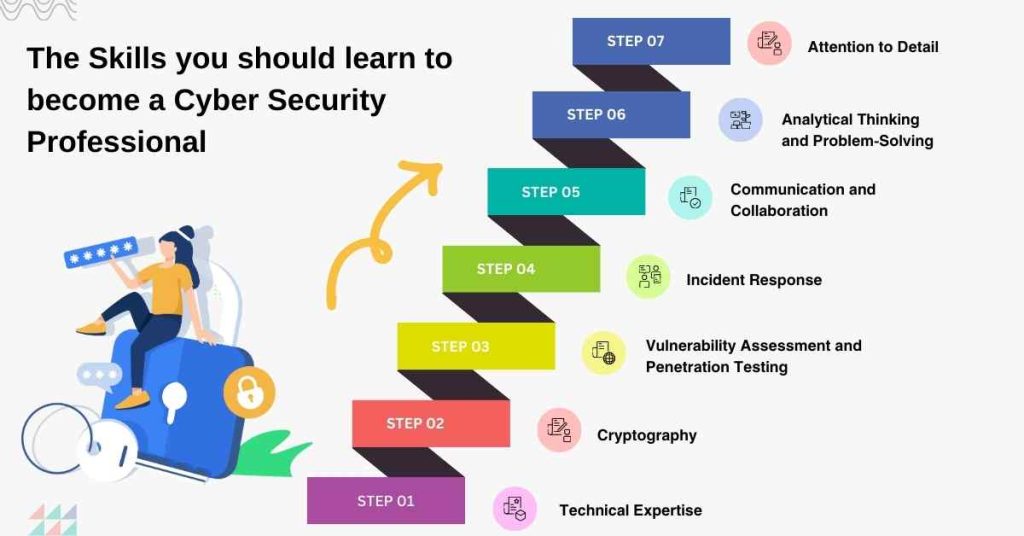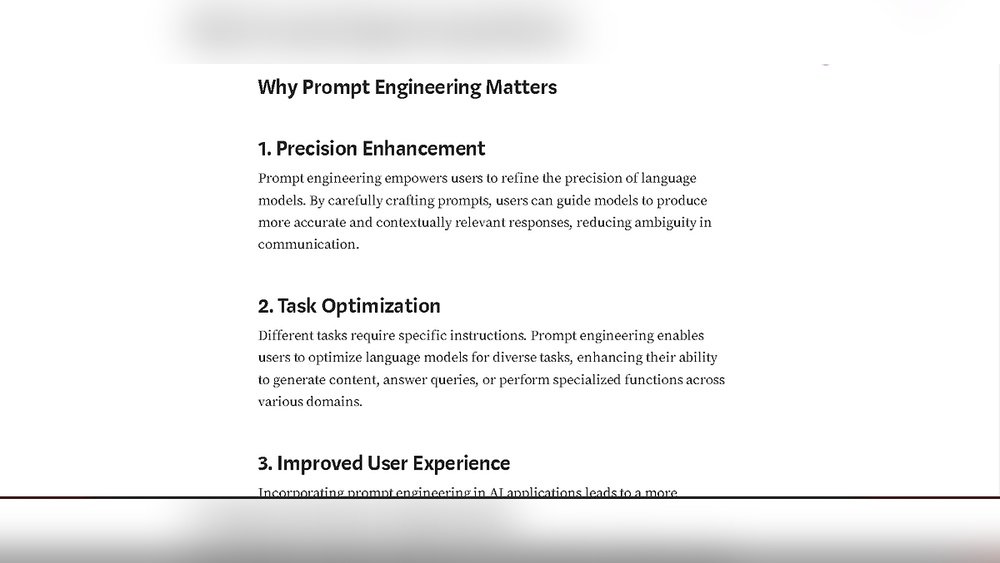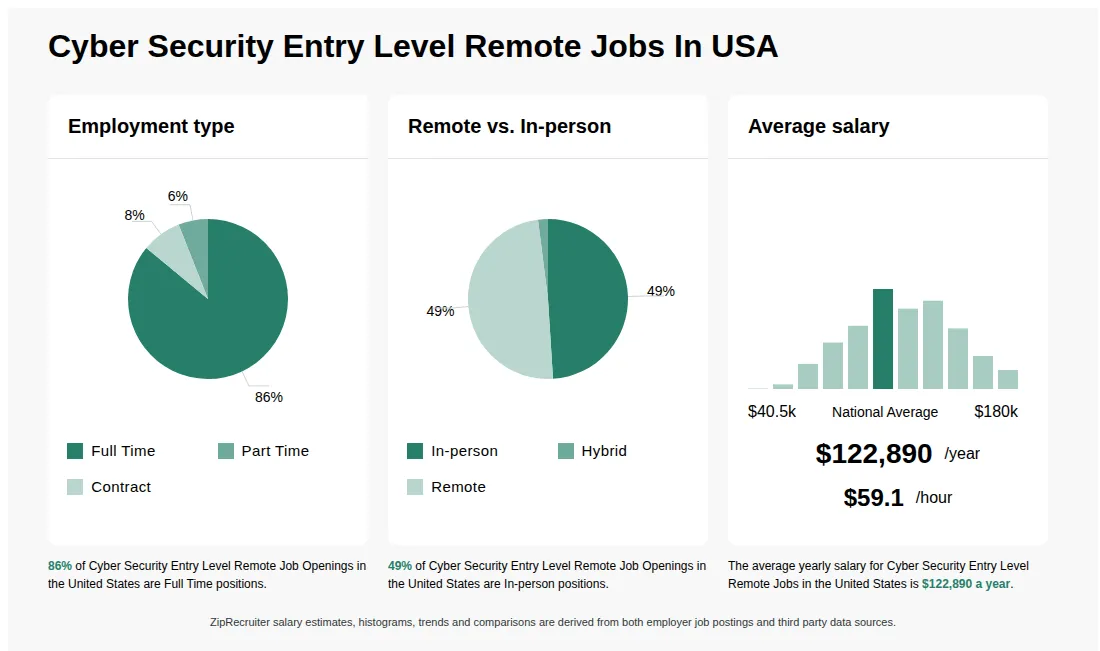Are you ready to start a career in cyber security but worried about the commute or office hours? What if you could launch your entry-level cyber security job right from your own home?
Remote roles in this field are growing fast, and they offer you the chance to build valuable skills without stepping outside. You’ll discover exactly how to find entry-level cyber security remote jobs, what skills you need, and how to stand out to employers.
Keep reading—your future in cyber security might be just a few clicks away.

Credit: www.institutedata.com
Entry Level Cybersecurity Jobs
Entry level cybersecurity jobs offer a great start for anyone interested in protecting data and systems. These roles focus on learning and applying basic security principles. Many companies hire remote workers, making these jobs accessible from anywhere. The demand for cybersecurity professionals grows every year. This means more opportunities for beginners. Understanding the roles, duties, and skills needed can help you begin your career.
Popular Remote Roles
Common entry level jobs include security analyst, junior penetration tester, and IT support technician. Security analysts monitor networks for unusual activity. Junior penetration testers help find security weaknesses. IT support technicians assist with computer and network issues. These roles often allow remote work. Companies value workers who can help protect digital systems from afar.
Job Responsibilities
Entry level workers often monitor security alerts and analyze risks. They assist in creating reports on security incidents. Many help maintain firewalls and antivirus tools. Some review system logs to find suspicious behavior. Learning to follow company security policies is key. Tasks often include helping with user access controls. Communication with team members about security issues is common.
Required Skills And Certifications
Basic knowledge of computer networks and operating systems is crucial. Understanding firewalls and antivirus software helps. Skills in monitoring and analyzing security alerts matter. Certifications like CompTIA Security+ or Cisco’s CCNA boost job chances. Learning about ethical hacking and risk management adds value. Soft skills like attention to detail and problem-solving are important. Many employers prefer candidates eager to learn and adapt.

Credit: cybersapiens.com.au
Top Employers Hiring Remotely
Many companies now offer remote jobs in entry-level cybersecurity roles. This opens new doors for job seekers everywhere. Remote work lets you join teams without moving cities. It also helps balance work and life better.
Some employers stand out in hiring remote cybersecurity beginners. They provide training and chances to grow skills. Knowing who these employers are helps you apply smartly.
Tech Companies
Tech firms often lead in remote cybersecurity jobs. Big names like Microsoft and Cisco hire fresh talent. They want to protect data and stop cyber attacks. These companies offer good pay and learning programs. Working here gives exposure to top tools and experts.
Government Agencies
Government jobs also offer remote work options. Agencies need security experts to guard public data. They hire entry-level staff to support their teams. These roles provide steady income and strong benefits. You help protect citizens’ information and systems.
Startups And Smes
Small and medium businesses need cybersecurity help too. Startups often hire remote workers to save costs. They offer flexible schedules and varied tasks. These jobs teach you many skills fast. You play a key role in their growth and safety.
Effective Job Search Strategies
Finding an entry-level cyber security job remotely needs smart strategies. The job market is competitive. You must stand out with the right approach. Focus on key areas like your resume, online presence, and networking. These steps increase your chances.
Optimizing Your Resume
Keep your resume clear and focused. Highlight relevant skills like risk assessment and basic coding. Use simple words and short sentences. Add any certifications or courses related to cyber security. Tailor your resume for each job. Mention remote work experience if you have it.
Leveraging Online Platforms
Use job sites like LinkedIn and Indeed daily. Set alerts for entry-level cyber security jobs. Join cyber security groups and forums online. Share your knowledge and ask questions. Participate in discussions to get noticed. Create a professional profile with a clear photo and summary.
Networking Tips
Connect with cyber security professionals on LinkedIn. Send polite, short messages to introduce yourself. Attend virtual events and webinars about cyber security. Ask questions and engage with speakers. Join online communities and offer help. Building relationships can lead to job referrals.
Building Essential Skills
Building essential skills is the first step to start a career in entry level cyber security remote jobs. These skills help you handle tasks well and work effectively from home. Focus on both technical and soft skills for a balanced growth. Keep learning to stay updated in this fast-changing field.
Technical Skills To Master
Learn basics like networking and operating systems. Understand how firewalls and antivirus software work. Get familiar with common cyber security tools and software. Practice identifying threats and vulnerabilities. Basic coding knowledge helps, especially in Python or Bash. Practice using virtual machines to create safe test environments. Study encryption and data protection methods. These skills make you ready for daily cyber security tasks.
Soft Skills For Remote Work
Communication is key in remote jobs. Clear and simple writing helps share reports and updates. Time management keeps your work on track without supervision. Problem-solving skills help fix issues quickly. Be proactive and ask for help when needed. Stay organized to handle multiple tasks easily. Trust and reliability build strong remote work habits.
Continuous Learning Resources
Use free online courses to improve your knowledge. Websites like Coursera, Udemy, and Cybrary offer beginner-friendly lessons. Read cyber security blogs and news regularly. Join online forums and groups to discuss topics and ask questions. Practice with labs and simulations available online. Attend webinars and virtual workshops to learn from experts. Keep your skills fresh by learning new tools and techniques often.
Interview Preparation Tips
Preparing for an entry-level cybersecurity interview can feel tough. Knowing what to expect and how to show your skills helps a lot. This section shares tips to get ready and feel confident. Focus on common questions, showing your knowledge, and handling virtual interviews well.
Common Interview Questions
Interviewers ask about basic cybersecurity concepts. Expect questions about firewalls, encryption, and malware types. They may ask how to handle data breaches or phishing attacks. Be ready to explain your understanding in simple words. Practice answering clearly and with examples. This shows you know the subject and can communicate well.
Demonstrating Practical Knowledge
Talking about theory is not enough. Employers want to see practical skills too. Share any hands-on experience with security tools or projects. Mention labs, simulations, or online challenges you have completed. Describe how you solved problems or found security risks. Showing real actions makes your answers stronger and credible.
Virtual Interview Best Practices
Most entry-level cybersecurity interviews happen online now. Make sure your internet connection is stable. Choose a quiet place with good lighting. Dress professionally to make a good impression. Look at the camera to keep eye contact. Have your notes ready but avoid reading them directly. Practice speaking clearly and calmly before the interview.
Advancing Your Cybersecurity Career
Advancing your cybersecurity career requires focus and continuous learning. The field changes fast. Staying updated with new skills helps you grow. Remote work offers many chances to gain experience and specialize. Here are practical steps to build your career in cybersecurity from home.
Gaining Experience Remotely
Start with entry-level remote jobs or internships. These roles help build real-world skills. Participate in online cybersecurity challenges and simulations. Volunteer for open-source security projects. Join remote teams to learn teamwork and communication. Practical experience matters more than just theory.
Pursuing Advanced Certifications
Certifications prove your knowledge to employers. Choose courses that match your career goals. CompTIA Security+, Certified Ethical Hacker (CEH), and CISSP are popular options. Study regularly and take practice exams. Many programs offer remote learning and testing. Certifications boost your resume and confidence.
Exploring Specializations
Cybersecurity has many areas to explore. Network security, cloud security, and incident response are common paths. Find what interests you most. Specializing increases your value in the job market. Take focused courses and earn certificates in your chosen field. Specialization opens doors to better roles and pay.

Credit: askremotely.com
Frequently Asked Questions
What Skills Are Needed For Entry Level Cyber Security Remote Jobs?
Entry level cyber security remote jobs require basic networking, understanding of security principles, and familiarity with security tools. Strong problem-solving and communication skills are also essential. Knowledge of operating systems and scripting can boost your chances.
How To Find Entry Level Cyber Security Remote Jobs?
Use job boards like LinkedIn, Indeed, and specialized cyber security sites. Networking and joining online cyber security communities can also help. Tailor your resume to highlight relevant skills and certifications.
Are Certifications Necessary For Entry Level Cyber Security Roles?
Certifications like CompTIA Security+, CEH, or CISSP improve job prospects. They validate your skills and knowledge to employers. However, hands-on experience and practical skills are equally important.
What Is The Average Salary For Entry Level Cyber Security Remote Jobs?
Entry level cyber security remote jobs typically offer salaries between $50,000 and $70,000 annually. Salary varies by location, company, and your skills. Remote roles may offer flexibility and additional benefits.
Conclusion
Starting a remote entry-level cyber security job is a smart choice today. This field offers many chances to learn and grow. You can build important skills while working from home. Demand for cyber security workers is rising fast. With dedication and effort, success is possible.
Stay curious and keep practicing your abilities. Remote work also brings flexibility and comfort. Your career in cyber security can begin now. Small steps lead to big progress. Keep moving forward, and opportunities will come.






